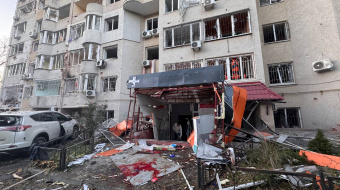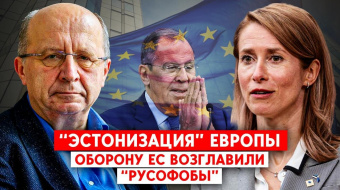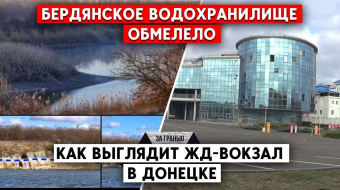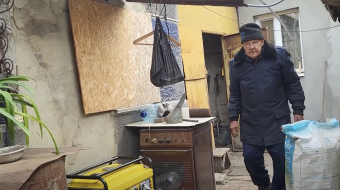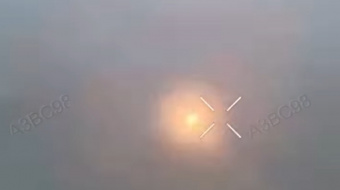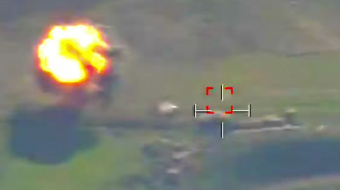Russia and Ukraine. What will the price of reconciliation be?
Russia and Ukraine. What will the price of reconciliation be?
Optimists’ voices can be heard in any kind of dialogue about the future of two countires. They believe that Kyiv and Moscow will have the same relationship as they used to have before February 2014.
They believe that the phrase about “brotherly nations” will not be a curse any more and all distortions will be eliminated. This is the moment when it becomes absolutely clear that these ideas are delusory.
Skeletons in the cupboard
Any phrase and any fight tend to be forgotten with the time. Take, for example, the English and the French, the French and the Germans, the Poles and the Ukrainians. Stories of these nations are full of reciprocal massacres. Some of these massacres happened not so long ago and grandparents of our generation remember them really well. Still, in each case, reconciliation took a long time and did not happen by itself.
If to take this experience into account, it is possible to say that one day it will be possible to revive the relationship between Kyiv and Moscow.
However, this will be possible only if Russia rejects its empire ambitions and starts treating Ukraine as an independent state which is capable of choosing its future orbit.
Are such changes possible in Russia in the near future? This is a rhetorical question.
More than that, even if Russia changes its rhetorics, this fact alone will not change anything. The dialogue will not be possible as long as both conflict sides give different answers to the questions who the Crimea belongs to.
The minimal things which Russia should do and which will make stabilization of the relationship between the two countries possible, is forgetting “Crimean spring” and “Novorossia” projects, getting rid of imperial complexes and state haughtiness. How many Russian citizens are ready to do this today?
Virtual and real wars
Russian citizens still think that their country is not a conflict party. Only the families of those Russian servicemen who were sent to the Donbas to fight the Ukrainian Army and perished there know what happened to their relatives. These families are silent, though.
However, this war is more than real for Ukraine.
All the people, all the generations of our country have felt it. Six mobilization waves produced a whole caste of ATO veterans and today the Ukrainians trust the Armed Forces more than they trust all the branches of power taken together.
Nearly everyone has either friends or relatives who have been to the front or have joined the volunteer movement. They are the people who will make the future electorate and society moods of Ukraine in the next decades.
Besides, the current war has started another tectonic process which is internally displaced persons.
The Crimea and the Donbas have brought the country to the top positions in a sad rating: now Ukraine is the leader of the region by the number of internally displaced persons. The present number of forced migrants is more than one million and a half. The majority of them are not going to return to their native places.
If anyone in Russia is ready to explain these people that the twists of their destiny can just be forgotten and they can live the way they used to live before the war — well, let him or her try.
One way ticket
It is possible to understand optimists, a person always wants to believe that everything will be fine. We always hope that we will be able to repair something, to apologize, to pay a fine. The thing is that it is not always true.
Blood makes any confrontation sacred. It leaves back photographs with black ribbons, rods on balconies which will never be used again and car parts which are going rusty in a garage. Death makes the reasons secondary and facts primary. It is not the content of the obituary that matters, but the obituary itself. Today, Ukrainian children draw pictures of the war.
This is why, by the way, it will be easier to reintegrate the Crimea than the Donbas. The annexation was nearly bloodless and this is a crucial factor.
The fact that the events of the last two years became a part of national myths for both Russia and Ukraine is even more important.
On the one hand, there is “Crimean spring”, a climax of imperial ambitions which proves the right to make territorial mistakes.
On the other hand, there is Maidan, an archetype of a people’s rebellion and the ATO, a real war for independence.
These events are magnets with one pole, they cannot coexist, they can only repel each other. This can be changed only if the history of one of the conflict sides is forgotten.
Those who speak about reconciliation, should decide, which part of history we have to eliminate from the memory.
Pavlo Kazaryn for UP.
New service "Explain Ukraine". This is a daily mailout of three articles which were written about the situation in the Donbas by Donbas journalists and translated into English. Honest vision of people who work in the field is unbiased and fresh which is crucial in the world which is full of desinformation and propaganda. We try to share this vision in out daily mailout. You can subscribe here.










